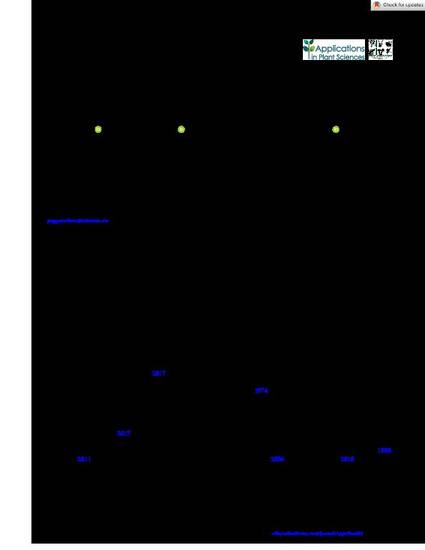
Premise: Determining the tolerance of plant populations to climate change requires the development of biotechnological protocols producing genetically identical individuals used for genotype-by-environment experiments. Such protocols are missing for slow-growth, woody plants; to address this gap, this study uses Artemisia tridentata, a western North American keystone shrub, as model.
Methods and Results: The production of individual lines is a two-step process: in vitro propagation under aseptic conditions followed by ex vitro acclimation and hardening. Due to aseptic growth conditions, in vitro plantlets exhibit maladapted phenotypes, and this protocol focuses on presenting an approach promoting morphogenesis for slow-growth, woody species. Survival was used as the main criterion determining successful acclimation and hardening. Phenotypic changes were confirmed by inspecting leaf anatomy, and shoot water potential was used to ensure that plantlets were not water stressed.
Conclusions: Although our protocol has lower survival rates (11–41%) compared to protocols developed for herbaceous, fast-growing species, it provides a benchmark for slow-growth, woody species occurring in dry ecosystems.
Available at: http://works.bepress.com/sven-buerki/42/
